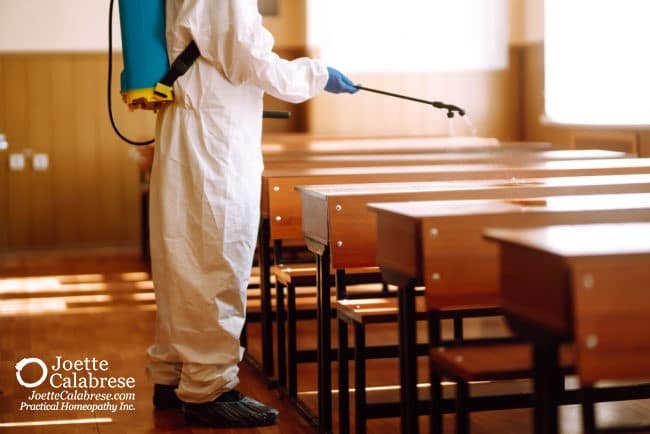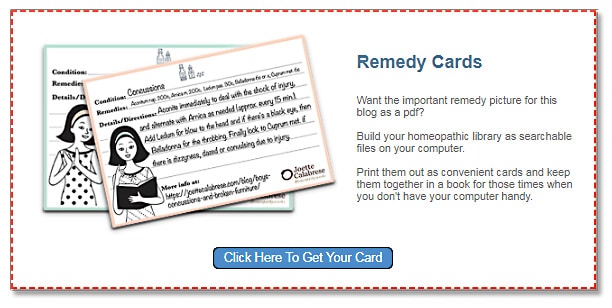A woman’s work is never done … or at least that’s how the old proverb goes.
There’s no better example than cleaning. Am I right? We no sooner have dusted our shelves than we can see the dust falling yet again.
But do we burn down the house to prevent more dust? No! That’s just silly.
Sure, it might eliminate the immediate problem (there’d be no more shelves left to dust), but obviously, that overreaction would cause much more collateral damage than necessary.
We take the time and care to repeat our cleaning regularly with natural and safe products and methods at home. Sure, it’s time consuming, but it’s safer.
However, many businesses and public places don’t take that time and care. Why? Because their focus is on liability and expediency. Many institutions simply pull out the big guns — the high-level disinfectants — to clean common areas, regardless of their potential collateral damage.
Sure, these disinfectants reduce bacteria and viruses on surfaces, but their collateral damage adversely impacts fertility.
I bet that got your attention.
I’ve known for years that certain disinfectants are hormonal disrupters, but recently, reader Michael D. sent me a litany of articles explaining the topic in greater detail. Generally, this is something I would discuss privately with my Mighty Members. However, access to this amount of information is incredibly valuable, so I decided to share it with you.
The disinfectant offenders in question are called QACs (quaternary ammonium compounds). While you would never choose to utilize them in your home, you and your children are surreptitiously subjected to them in schools, public places and many airlines — all in the name of virus mitigation.
Most shockingly, the use of these disinfectants might not only be affecting the reproductive systems of those directly exposed to them, but they might also be affecting the reproductive systems of generations to come.
At what price do we want to be free of bacteria and viruses?
In a fascinating article published last fall, research scientist James Lyons-Weiler explains:
“Breeding pairs of mice that had been exposed for six months to a QAC disinfectant exhibited decreases in fertility (the ability to reproduce) and fecundity (the number of offspring). …
… The authors concluded that exposure to a common QAC disinfectant mixture significantly impaired reproductive health in mice and that exposure to males alone also led to intergenerational risk.”
Imagine utilizing any product that could reduce your fertility and burden your offspring with congenital disabilities and similar reproductive health issues. It’s unthinkable, isn’t it?
Yet have you heard about these concerns from mainstream media? I doubt it. Don’t you wonder if it’s all part of the Kabuki? Indeed, the hidden danger of these disinfectants escapes detection by all but the most diligent of individuals.
We who utilize homeopathy, however, are decidedly diligent. We are observant. We are not sheep following conventional opinions.
So, now that we are better informed, what do we do with this information?
We take control.
You have the power to encourage safer alternatives to be used in your public spaces. Contact your school board and your workplace maintenance supervisors. The City of San Francisco published an article listing many safer options. JetBlue airline joined a trial program to use UV light as a disinfectant. (If you require even more studies and information, I’ve included a few more links at the end of this article.)
However, what if you’ve been exposed to these chemicals? Is it time to panic?
No.
Do you assume that you have been adversely affected?
NO!
I want to make this point abundantly clear because it applies to our use of homeopathic medicines in general.
We do not assume. We do not speculate. We wait until symptoms arise.
For example, suppose a teenage girl suddenly experiences menses problems after known exposure to high-level disinfectants at school. In that case, we can employ a homeopathic remedy — Pulsatilla 30, every other day until regular menses is restored.
In fact, the etiology is not even that vital. If our young lady is experiencing menses issues, Pulsatilla is the answer.
No matter the toxins.
No matter the microbes — homeopathy's got you covered.
So, instead of worrying about potential problems, you can spend your time in more fruitful activities …
like learning more homeopathic medicines to treat your family.
Warmly,
P.S. As promised, here are several additional resources. I hope they help you bolster your case with the powers that be as you try to limit your exposure to QACs and other high-level disinfectants.
- Ambient and Dosed Exposure to Quaternary Ammonium Disinfectants Causes Neural Tube Defects in Rodents
- Altered Toxicological Endpoints in Humans with Quaternary Ammonium Compound Exposure
- Lab disinfectant harms mouse fertility
- Quaternary ammonium disinfectants cause subfertility in mice by targeting both male and female reproductive processes
- In VitroEvaluation of Mitochondrial Function and Estrogen Signaling in Cell Lines Exposed to the Antiseptic Cetylpyridinium Chloride
- Quaternary Ammonium Compounds in Cleaning Products: Health & Safety Information for Health Professionals (This report also touches on safer ways to disinfect using alternative products on page 6.)
P.P.S. If information such as this is of interest to you, I encourage you to become one of my Mighty Members.
You’ll receive in-depth information on various topics such as this one (subjects I generally feel uncomfortable sharing on public venues). You’ll also gain access to candid memos and short video “musings” straight from my thoughts of the day.
Plus, our new, private discussion group provides a unique opportunity for you to meet other like-minded homeopathy students in a safe, less-censored environment than commercial, public forums. It’s Facebook-like, without the constraints of Facebook.
And remember — all of my Mighties qualify for a 10% discount on course purchases. If you need assistance getting your discount, email [email protected] for more information.






Hi Joette, thank you for the informative post. About exposures to a high level of disintectants, how would be able to observe these in boys. What kinds of symptoms would you look for?
It’s hard to say how it would present immediately in boys but that’s essentially the upshot of my article. That is, keep them away from these substances but once/if something presents, we treat it homeopathically.
Couldn’t this also be treated with arsenicum album as with pesticide exposure?
Yes but only if there’s a set of symptoms that present as Ars.
I’m presenting a solution for when the menses become disordered as a result of the exposure.
It’s much more specific in this scenario.
Thank you so much for this information. I remember when we, as kids, played outside and got dirty. That made us strong!
I use natural cleaners as much as possible ( have not found one for laundry/strong one for pots and dishes) to clean. Avoiding chemicals st least in our area might keep us healthier, and using homeopathy, of course!!
Joette, I love your teachings. Bless you!
Hi Carolina! Have you tried “Truly Free” for laundry detergent? It smells REALLY nice, and cleans well too! Haven’t tried for pots and dishes yet, but I will! I already have a lot of their products. Hopefully you’ll get to see this comment. Not sure how this works!. LOL! 🙂